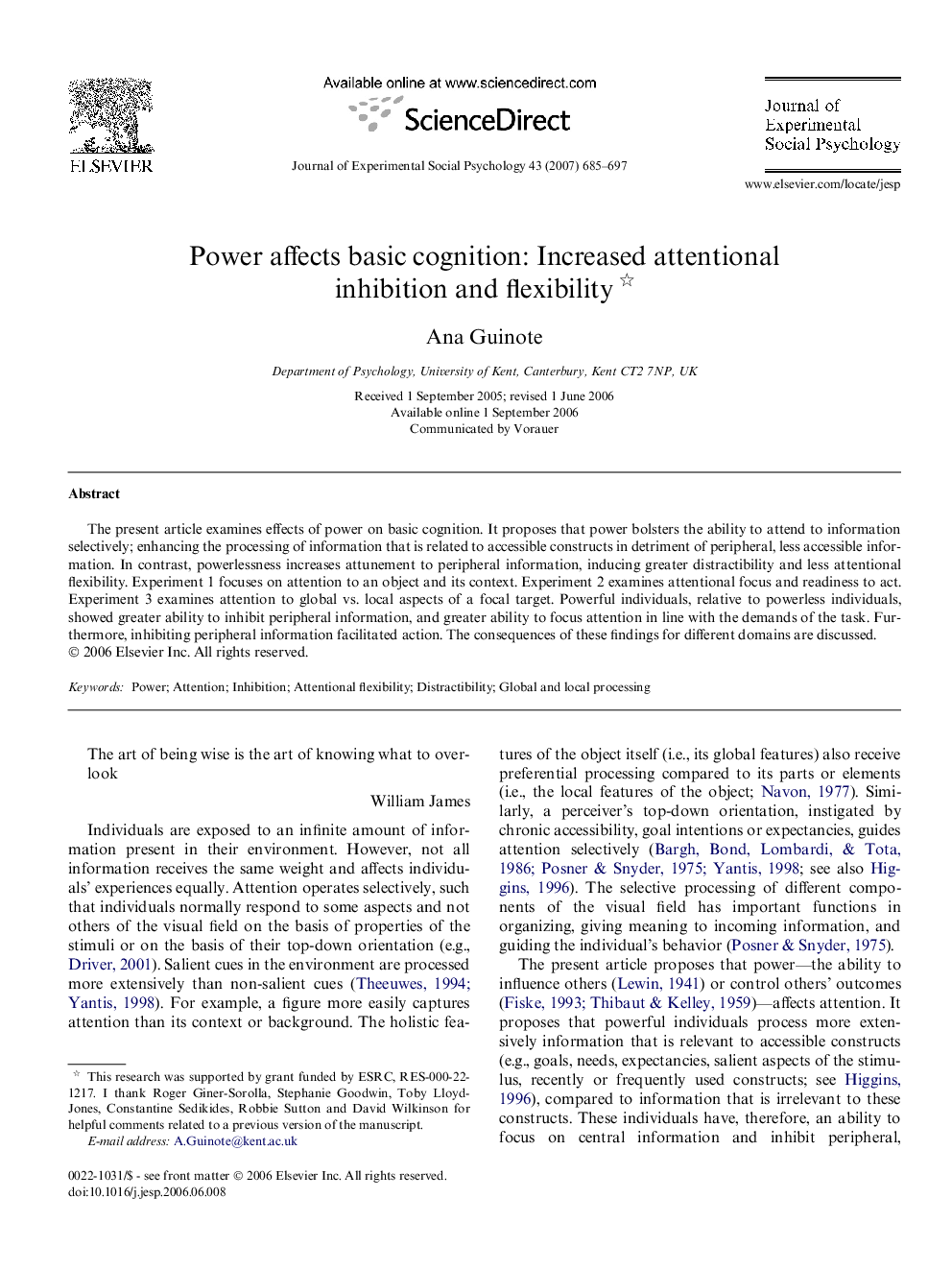| Article ID | Journal | Published Year | Pages | File Type |
|---|---|---|---|---|
| 948575 | Journal of Experimental Social Psychology | 2007 | 13 Pages |
The present article examines effects of power on basic cognition. It proposes that power bolsters the ability to attend to information selectively; enhancing the processing of information that is related to accessible constructs in detriment of peripheral, less accessible information. In contrast, powerlessness increases attunement to peripheral information, inducing greater distractibility and less attentional flexibility. Experiment 1 focuses on attention to an object and its context. Experiment 2 examines attentional focus and readiness to act. Experiment 3 examines attention to global vs. local aspects of a focal target. Powerful individuals, relative to powerless individuals, showed greater ability to inhibit peripheral information, and greater ability to focus attention in line with the demands of the task. Furthermore, inhibiting peripheral information facilitated action. The consequences of these findings for different domains are discussed.
